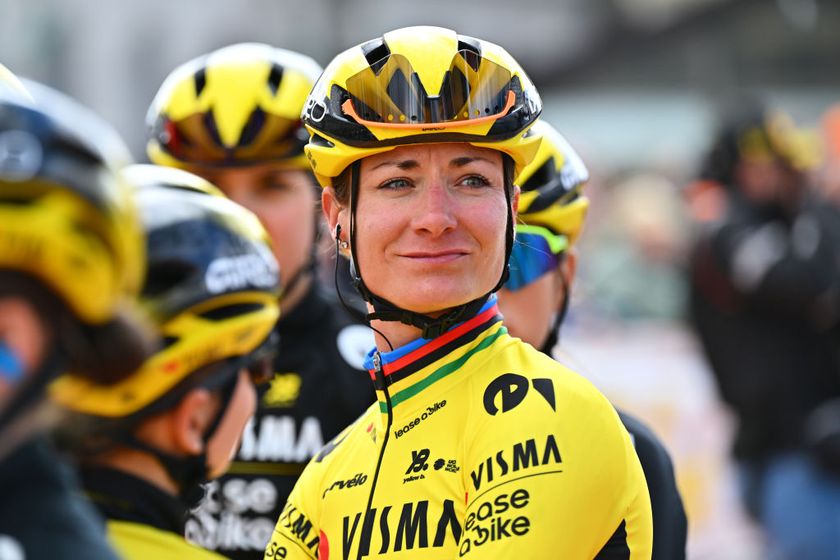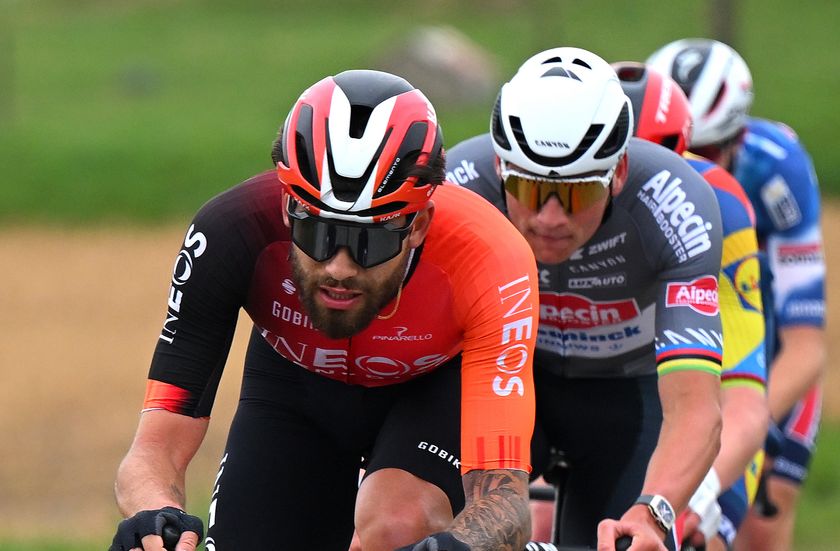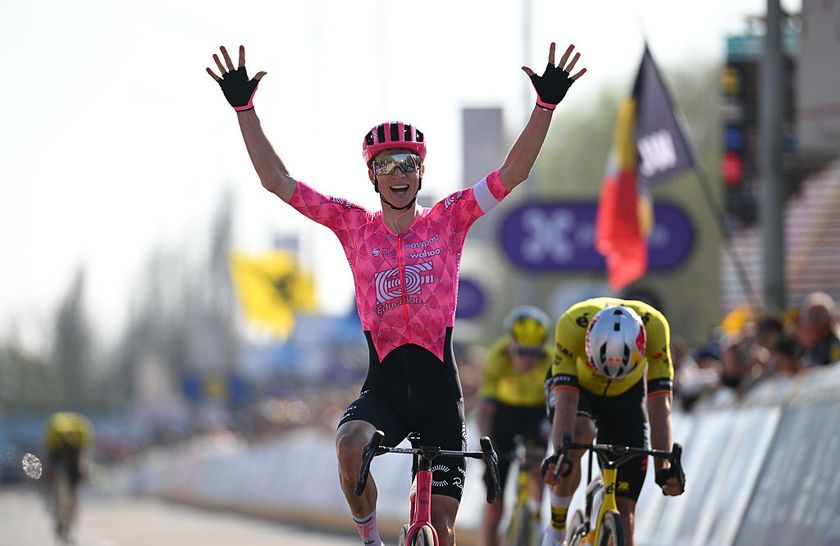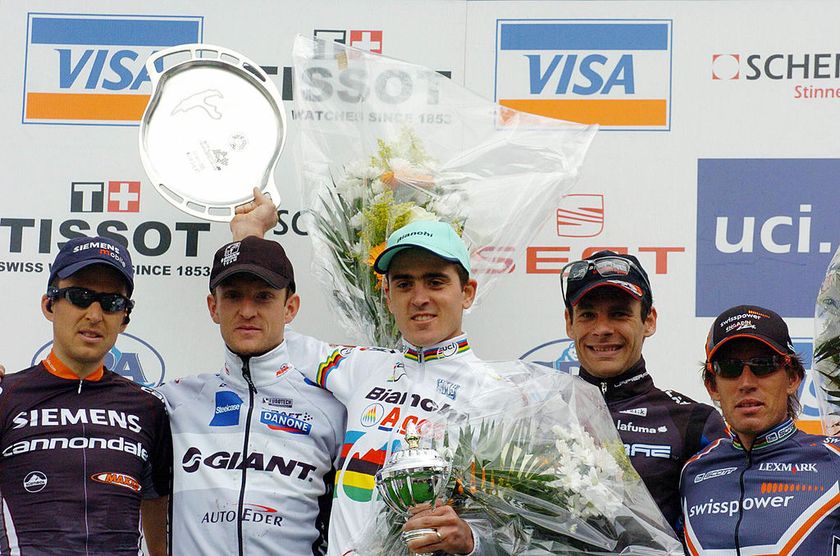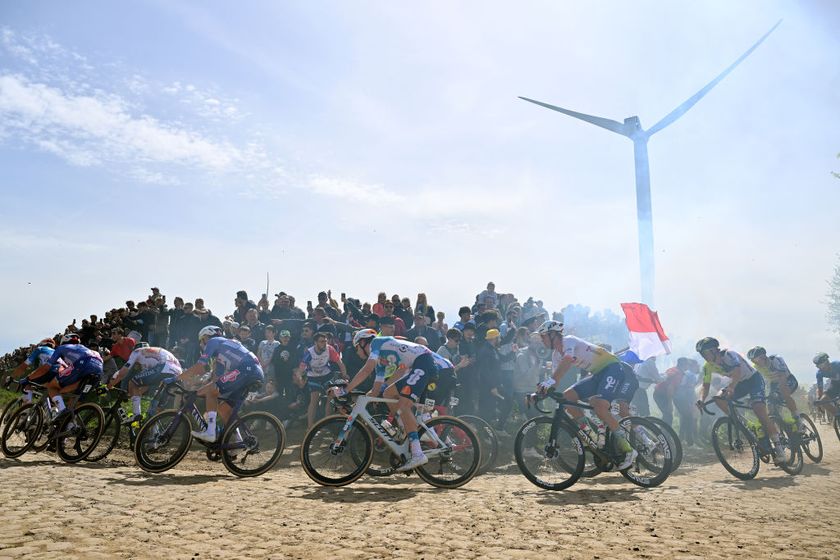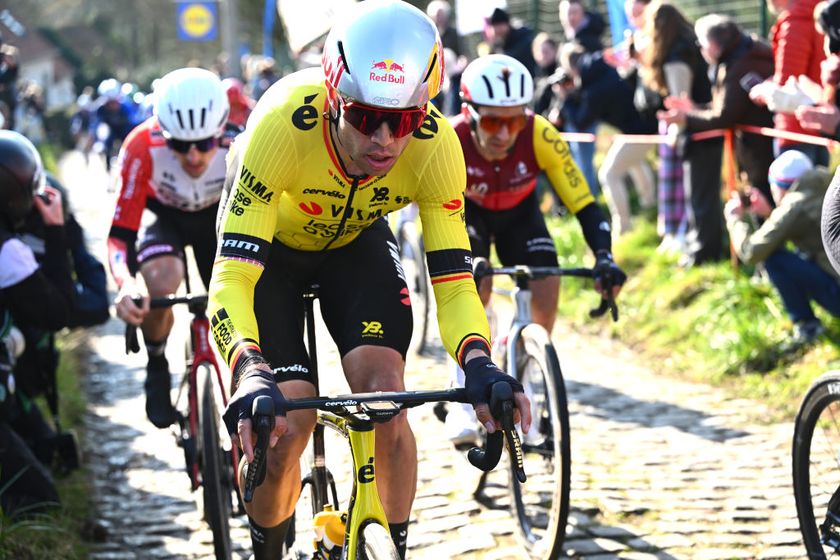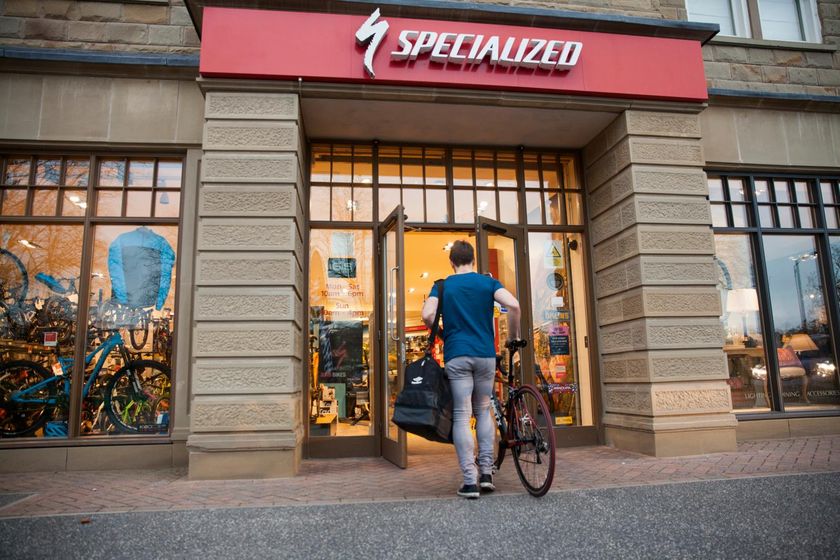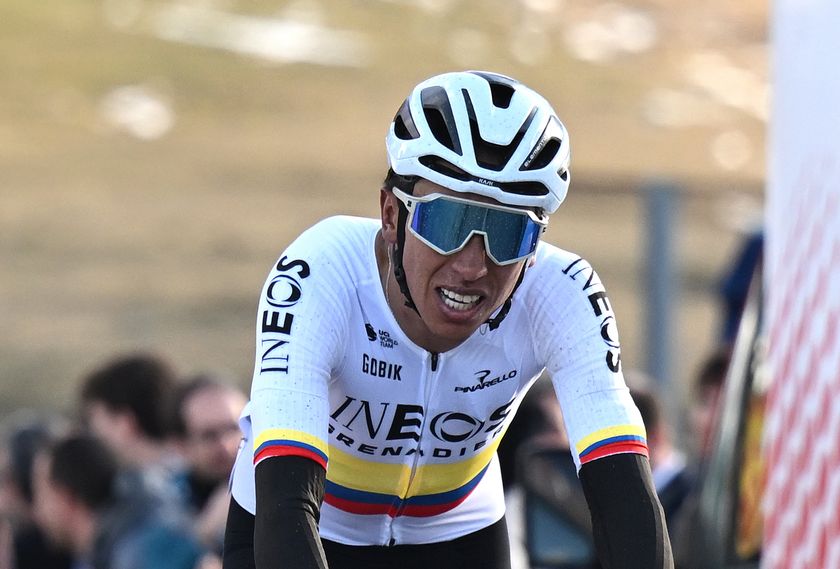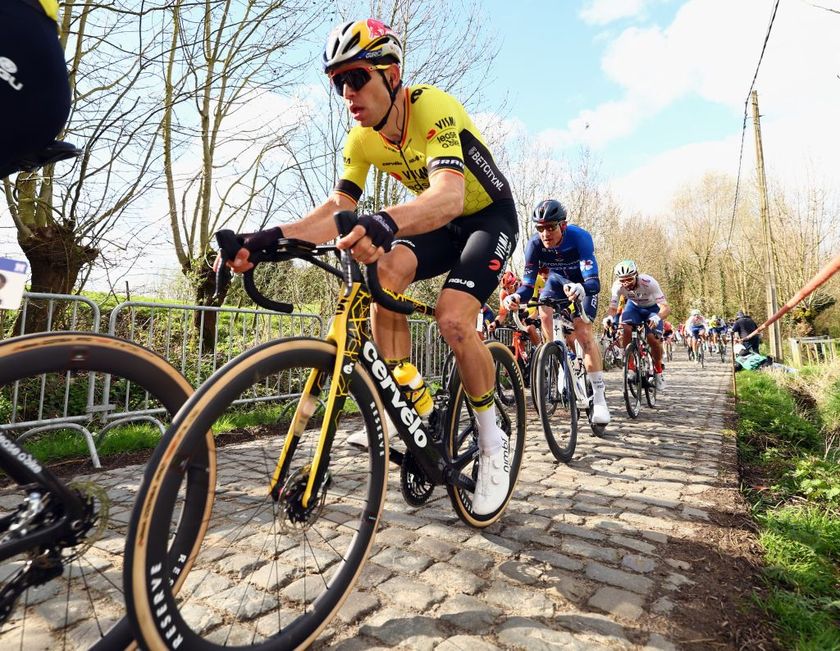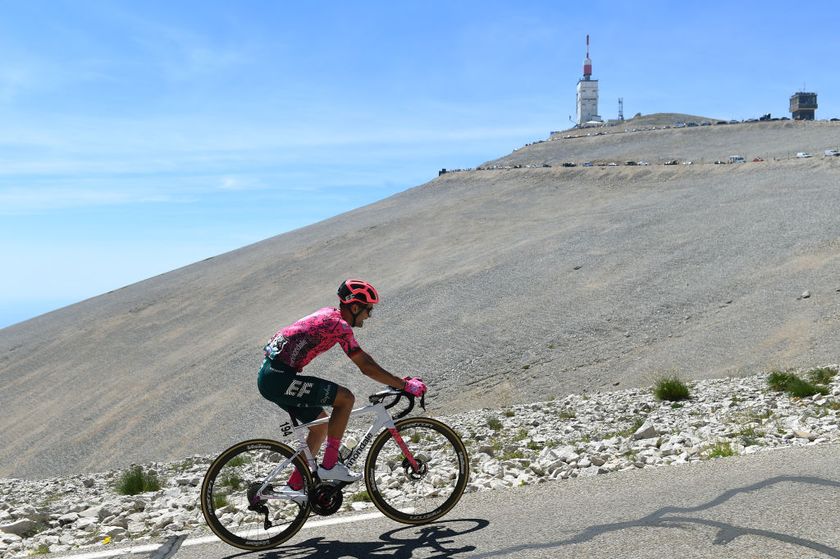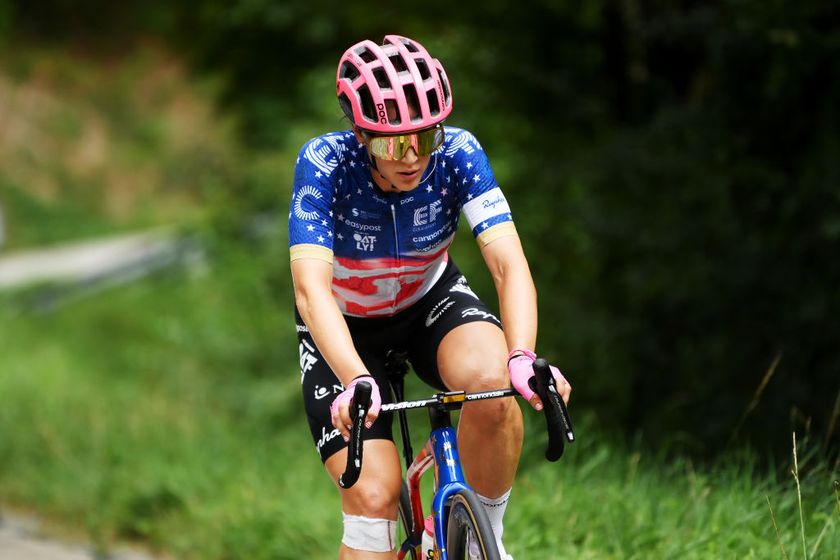Steels: We've had a good Classics campaign, no matter what happens at Paris-Roubaix
'We can be proud of what we've done' says QuickStep sports director





Momentum and expectancy are two bywords that would have defined Deceuninck-QuickStep's spring until recent weeks. However, after failures to win Gent-Wevelgem and the Tour of Flanders – although they were second in the latter – all eyes now turn to Sunday's Paris-Roubaix. Victory for the Belgian outfit would reinforce their dominance as the Classics team of the year, but a loss would possibly take the gloss off their entire Classics campaign.
That may appear harsh for a team that ran away with both wins at Opening Weekend, that demolished the opposition at the E3 BinckBank Classic, and sewed their run together with victories at Scheldeprijs and Le Samyn, but such is the nature of the sport. A team is only as good as its last result, and in the last two major appointments at Gent-Wevelgem and Flanders, the team has missed out. High standards, of course, but this is the squad that sets the bar and has consistently raised it.
Tom Steels, who sits in the Deceuninck-QuickStep team car these days, but was once, as a rider, an integral part of the team's Classics plans, explained that the team were focused on Sunday, but that their spring would still be viewed as a success once the dust had settled.
"You still start with the eagerness to win, and with all the qualities that your riders have. You want to win, but it's only afterwards that you can sit there and say, 'Fuck – we didn't win, but at least we won the other races.' But for now we'll just focus on Sunday," he told Cyclingnews as his riders walked towards the stage in Compiègne, France, for the teams' presentation on Saturday afternoon.
"A lot of other teams will finish Roubaix and won't have won anything. They'll leave the first part of the spring Classics with a worse feeling than us. We can be proud of what we've done. We've had a very good spring, and have won a lot of different races. If we lose tomorrow because of a flat tyre or a technical problem, then of course we'll be disappointed. But after a week or so to reflect on it, we'll probably be able to say that we did a good job."
Steels' riders arrive in Compiègne with Zdenek Štybar and Philippe Gilbert both on the mend after recent illness. The pair were unable to contest the finale in Flanders, but young Dane Kasper Asgreen flew the flag with a fine second place. It was an incredible result for a rider who had only moved into the WorldTour ranks last year, and further testament to the squad's deep pool of talent. On Friday, perennial rival Greg Van Averamaet (CCC Team) highlighted Asgreen's Flanders ride as proof of the quality of Classics riders this spring.
Whether Asgreen will be allowed to ride for himself or be kept as a domestique in Paris-Roubaix remains unclear, but Steels admitted that the 24-year-old would be key to the team's display.
Get The Leadout Newsletter
The latest race content, interviews, features, reviews and expert buying guides, direct to your inbox!
"He's one of the guys who can be really important, but he's still young and this is his first Roubaix. He has the qualities, but knowing what do in the race might be too much. We'll have to see. He had an excellent Tour of Flanders, but we'll have to see how he goes on Sunday. Somewhere on the course, he will be very important," Steels added.
With a headwind expected during phases of Sunday's race, the battle to infiltrate the main break could be crucial. Deceuninck-QuickStep have potential cards to play and may decide to use the opening flat roads to open the race up before the cobbles. There have been occasions in recent years when the early break hasn't formed before the cobbles, but, whatever the outcome, Steels expects a significant battle as teams look to set up the foundations of their race with a strong start.
"It's going to be a hard battle for the break. The wind direction isn't favourable, and it's always dangerous. We'll see a hard start, but I don't think a small group will have much chance. For a break to really gain time, they'll need numbers," he told Cyclingnews.
"The riders know that if they get in the early break, then they can often go all the way to the end – especially if the breakaway is big enough. That's why some very good riders want to be up there, and it's not impossible for us to be there. It's a luxury and an advantage to be in that position. As a rider, I was able to do it – once when Franco Ballerini won [in 1998], and then again when Andrea Tafi won [1999]. If we don't get in, we don't get in, but you also need to think about how much energy you use up. On the other hand, chasing can really take it out of you.
"The early break is all about making the move at the right moment, and then taking a moment to see who's in it. You can't control it."
Deceuninck-QuickStep have controlled – and won – so much this spring. Surely they would back themselves to do the same one last time and bring the curtain down on their cobbled Classics campaign in style.
Daniel Benson was the Editor in Chief at Cyclingnews.com between 2008 and 2022. Based in the UK, he joined the Cyclingnews team in 2008 as the site's first UK-based Managing Editor. In that time, he reported on over a dozen editions of the Tour de France, several World Championships, the Tour Down Under, Spring Classics, and the London 2012 Olympic Games. With the help of the excellent editorial team, he ran the coverage on Cyclingnews and has interviewed leading figures in the sport including UCI Presidents and Tour de France winners.
